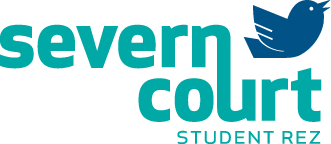Even before online classes became a necessity, they were growing in popularity. Some students like the flexibility, whereas others find they learn better through online classes than with in-person courses. Whether you decide that online classes would be right for you comes down to personal preferences. If you’re unsure, a good place to start is to compare the pros and cons.
Pro: Fit Classes Around Your Life
With online classes, you can create a schedule around your other commitments, such as a job, volunteering, or an internship. Provided you do have some spare time and you choose a reasonable number of classes, you should find it’s possible to fit studying into your life.
Con: You’ll Need to Be Disciplined
College requires much more discipline than high school, but the difference is even more pronounced with online classes. Since there’s less of a schedule, you’ll need to develop excellent time-management skills: both to determine how much you can do each week and to ensure you stick to your schedule. It’s equally important to avoid becoming too dedicated to online classes to the point where you neglect other areas of your life — you still need to make time for things like for a social life, exercise, and hobbies.
Pro: Learn at Your Own Pace
Taking online classes usually means you are able to tailor the program to your time constraints. Some classes are likely to have specific start and end dates, but others may be open for enrollment at any time, allowing you to study at a pace that works for you.
Con: Higher Risk of Becoming Demotivated
Some students find it more motivating to learn alongside others in a classroom setting. Motivation is important for keeping you on track throughout your college career. For instance, if you have no clear goals for after you graduate or you find that you enjoy your major less than you expected, you may end up taking only a few classes each semester or even taking entire semesters off. The result could be a delayed graduation — or you may never complete the program at all.
Pro: Save Money
Most online classes are less expensive than a similar course on campus. In addition to lower tuition fees, they tend to require you to buy fewer textbooks and other materials. Plus, you won’t have any travel expenses.
Con: Fewer Social Interactions
It can be more difficult to make friends when you only interact with other students online. The course may give you opportunities to discuss course materials, but you’ll likely need to make your own arrangements if you want to meet in person.
Pro: 24/7 Access to Course Materials
Often, online classes use recorded lectures that you can watch (and rewatch) at any time. It’s also easy to access texts and other study materials whenever you want: all you need is an internet connection.
Con: More Difficult to Connect with Professors
Forming a connection with professors can benefit you after you graduate, but it’s difficult to network when you are rarely (or never) in the same physical space. You may need to take the initiative and request one-on-one conversations. Not only will this help you stand out as an engaged student, you’ll also be able to receive detailed feedback about assignments to keep improving.
Whatever kind of classes you decide to take, you’ll need to live somewhere with a fast internet connection. In addition, to live the full college experience — no matter whether you choose to study fully online or take a hybrid approach — you should search for somewhere around other students. Our Sir Sandford Fleming College housing gives you both of these things. Equipped with ultra high speed fibre internet, it’s virtual class ready. Plus, it’s just for students. Take a virtual tour to check out the suites and onsite amenities for yourself.






